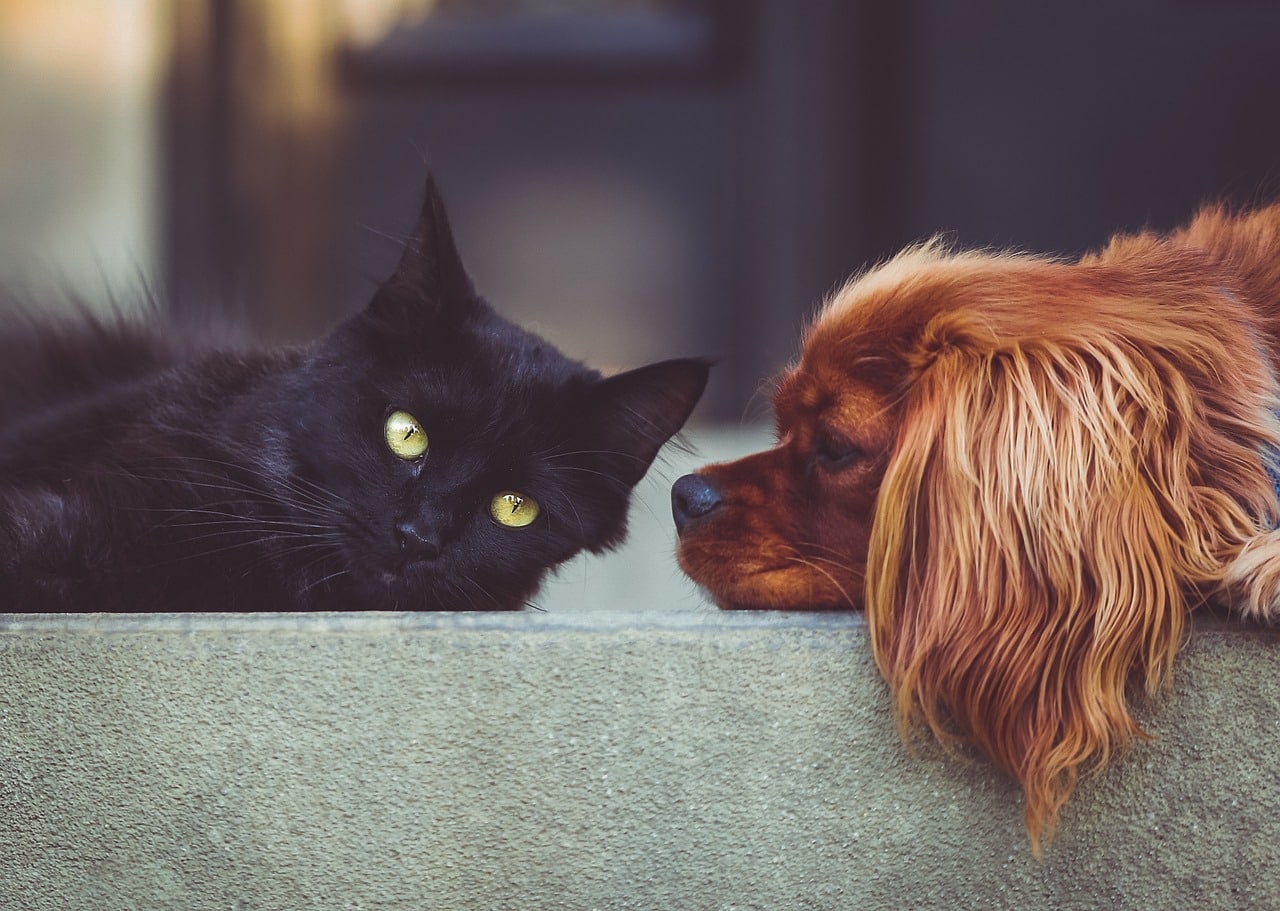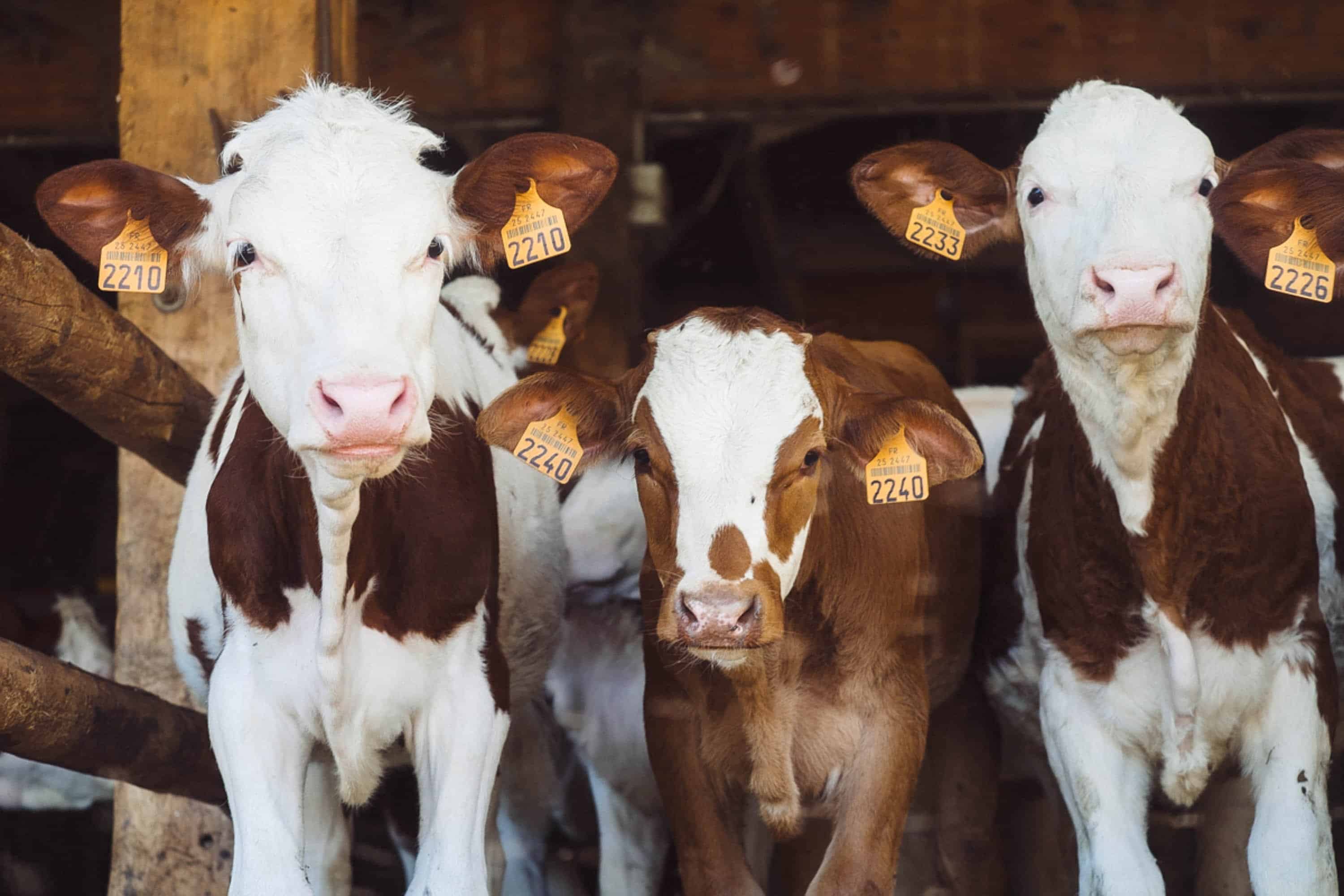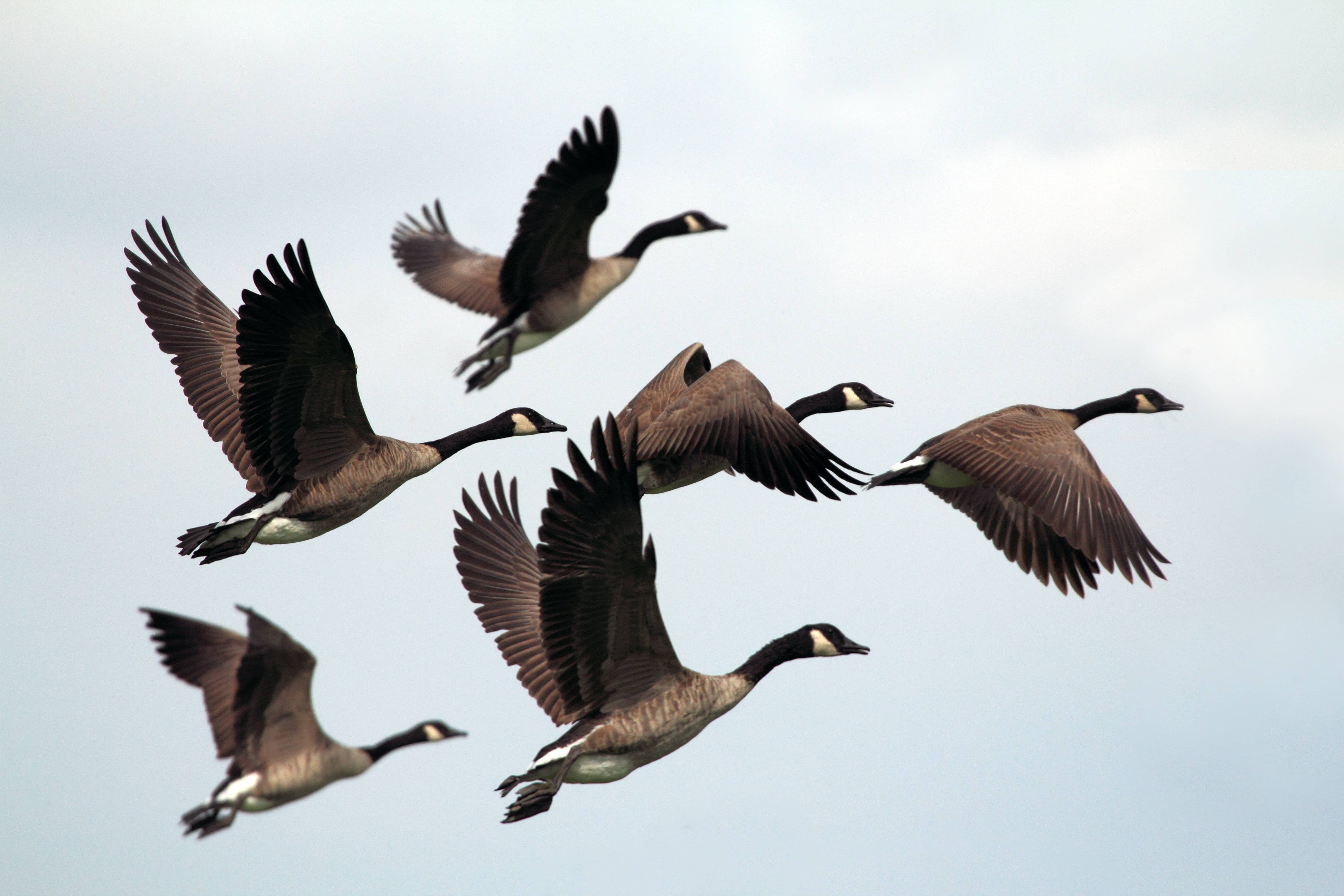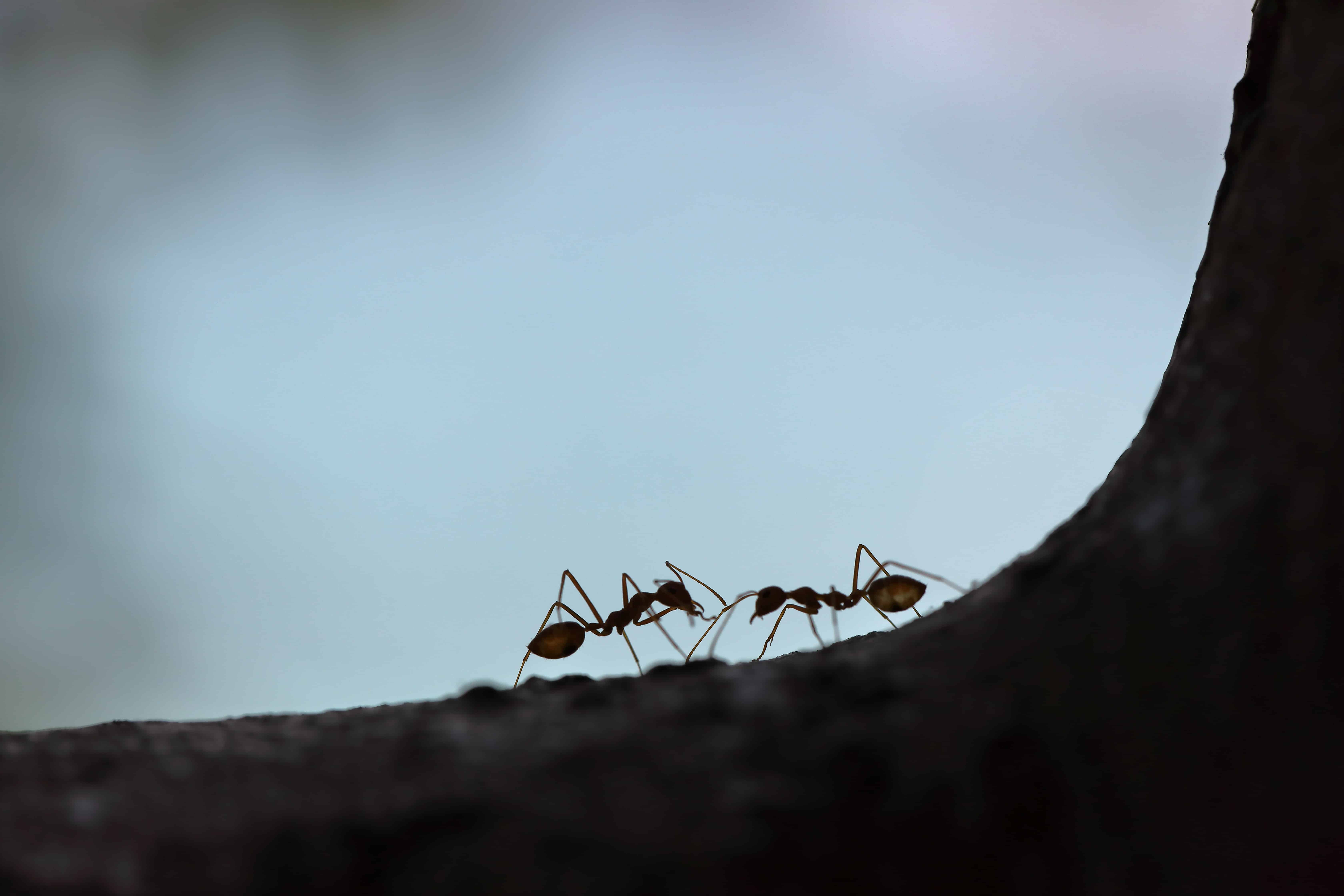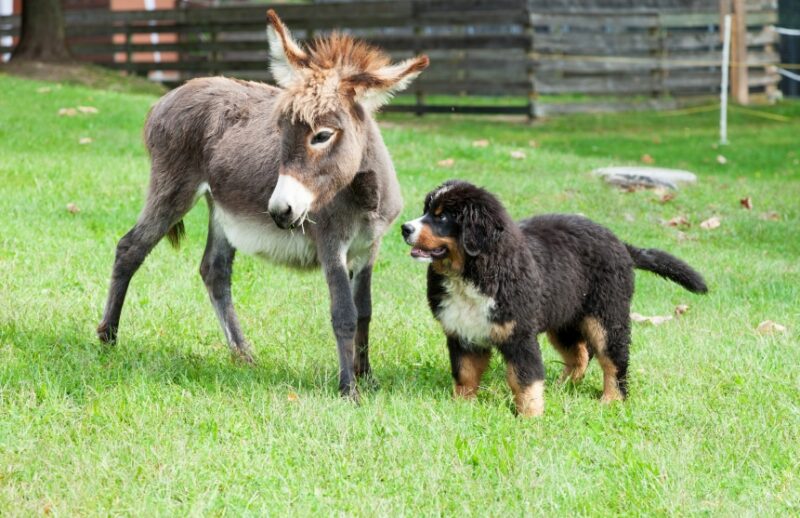
100+ Animals in French: Pets, Farm Animals and More
If you’re learning French, les animaux (animals) have to be part of that process, too.
Luckily, learning the names of some of the world’s creatures is one of the more fun activities in any language!
Plus, many animal names in French have a variety of meanings beyond the simple and literal.
In this post, we’ll learn a whole herd of French animal names and provide places you can practice using them.
Contents
- Les animaux domestiques — Pets
- Les animaux de la ferme — Farm animals
- Les animaux sauvages — Wild animals
- Les animaux marins — Sea animals
- Les oiseaux — Birds
- Les insectes — Insects
- A Quick Note on Gender
- Resources for Practicing Your French Animal Vocabulary
- And one more thing...
Download: This blog post is available as a convenient and portable PDF that you can take anywhere. Click here to get a copy. (Download)
Les animaux domestiques — Pets
un chien — a dog
un chat — a cat
The feminine versions of the nouns for dog and cat are chienne and chatte.
However, these both have meanings that are potentially offensive or naughty-sounding depending on context, which you can probably figure out based on similar versions that exist in English.
un cochon d’Inde — a guinea pig
un hamster — a hamster
un lapin — a rabbit
un poisson rouge — a goldfish
un poisson tropical — a tropical fish
un triton — a newt
une tortue — a turtle
un perroquet — a parrot
une perruche — a parakeet
un cacatoès — a cockatoo
une colombe — a dove
un canari — a canary
Les animaux de la ferme — Farm animals
un cochon — a pig
A pig can also be called un porc, and a sow is une truie.
un cheval — a horse
Be careful not to mix up the plural for cheval, chevaux, with the word for hair, which is cheveux.
un étalon — a stallion
une jument — a mare
une vache — a cow
Vache and variations on it practically make up their own subcategory of French slang and colloquialisms. La vache! is an expression used to express surprise. It’s sort of equivalent to “wow” or “damn” in English.
un taureau — a bull
un poulet — a chicken
une poule — a hen
un coq — rooster
un mouton — a sheep
un agneau — a lamb
une chèvre — a goat
Chèvre can also refer to goat’s cheese, but when this happens, it takes on the properties of a masculine noun.
un âne — a donkey
une mule — a mule
Les animaux sauvages — Wild animals
un écureuil — a squirrel
un blaireau — a badger
un tamia — a chipmunk
French Canadians have their own special word for chipmunks, un suisse, which literally means “a Swiss” and may have to do with how chipmunks’ stripes resemble the uniforms of the Vatican’s Swiss Guard.
une souris — a mouse
As in English, this word can also refer to a computer mouse.
un rat — a rat
un furet — a ferret
un hérisson — a hedgehog
un renard — a fox
un cerf — a stag
une biche — a doe (deer)
un ours — a bear
un loup — a wolf
une girafe — a giraffe
un éléphant — an elephant
un lion — a lion
un tigre — a tiger
un guépard — a cheetah
un babouin — a baboon
un gorille — a gorilla
un singe — a monkey
un chimpanzé — a chimpanzee
un zèbre — a zebra
un serpent — a snake
un gecko — a gecko
un lézard — a lizard
une grenouille — a frog
un crapaud — a toad
une loutre — an otter
un alligator — an alligator
un crocodile — a crocodile
Les animaux marins — Sea animals
un poisson — a fish
des fruits de mer — shellfish (as food)
Literally, “fruits of [the] sea.”
un mollusque — a mollusk
une moule — a mussel
une huître — an oyster
une palourde — a clam
un homard — a lobster
un escargot — a snail
un crabe — a crab
une coquille Saint-Jacques — a scallop
Une coquille by itself is just a shell. In English-language contexts, coquilles Saint-Jacques suggests a particular preparation of scallops involving a wine sauce and breadcrumbs. But in French, coquilles Saint-Jacques refers to scallops themselves.
une crevette — a shrimp
une carpe — a carp
un anchois — an anchovy
un thon — a tuna
un saumon — a salmon
un bar — a bass
un doré jaune — a walleye
un brochet — a pike
une truite — a trout
un maquereau — a mackerel
Be careful, because maquereau can also mean “pimp,” and groseille à maquereau is “gooseberry.”
un phoque — a seal
une baleine — a whale
un requin — a shark
un calamar — a squid
une pieuvre / un poulpe — an octopus
un morse — a walrus
une anguille — an eel
un manchot — a penguin
Some French speakers use the masculine word pingouin to mean penguin, which is arguably incorrect as this word was originally meant to refer to a great auk, a bird resembling a penguin that’s now extinct.
Les oiseaux — Birds
un oiseau — a bird
un rouge-gorge — a robin
un moineau — a sparrow
une hirondelle — a swallow
un pic — a woodpecker
un étourneau — a starling
un merle — a blackbird
une corneille — a crow
un corbeau — a raven
It’s not always noted and people often get it wrong, but in French, the equivalent of “crow” is technically corneille, and the equivalent of “raven” is corbeau.
un aigle — an eagle
un faucon — a hawk
un faucon — a falcon
un canard — a duck
une cigogne — a stork
une oie — a goose
un cygne — a swan
Les insectes — Insects
une fourmi — an ant
une araignée — a spider
un scarabée — a beetle
un cafard — a cockroach
The French expression avoir le cafard (literally “to have the cockroach”) means to feel down or depressed, or to “have the blues,” as we might say in English.
une cigale — a cicada
une sauterelle — a grasshopper
une abeille — a bee
une guêpe — a wasp
un moustique — a mosquito
une mouche — a fly
une puce — a flea
une libellule — a dragonfly
FluentU takes authentic videos—like music videos, movie trailers, news and inspiring talks—and turns them into personalized language learning lessons.
You can try FluentU for free for 2 weeks. Check out the website or download the iOS app or Android app.
P.S. Click here to take advantage of our current sale! (Expires at the end of this month.)
A Quick Note on Gender
Gender in French with animals can get a little complicated, because:
- Many animals in French have a masculine and feminine version that can be applied depending on the sex of the animal. Plus…
- There are some French animal words that refer specifically to the female or male of the species (un cheval is “a horse,” but un étalon is “a stallion” and une jument is “a mare.”) However…
- When talking about a type of animal in general, French tends to default to one gender or the other (usually masculine, but not always).
This post isn’t meant to be a comprehensive look at all of the variations on the nouns and animals included. So unless it’s evident that they’re supposed to only refer to a female or male, the words listed above are the more neutral, default names you’re likely to find in a dictionary—the gender is indicated by the indefinite article (un for masculine, une for feminine).
Resources for Practicing Your French Animal Vocabulary
- Animaux TV. This French YouTube channel offers many educational and entertaining videos about animals, from pet advice and information about endangered species to celebrity encounters with scary and fascinating creatures.
- La Fontaine’s “Fables”. Jean de la Fontaine was a famous 17th-century French poet who’s still well-known for his “Fables,” and many of them are about animals. Practice reading the titles or test yourself with a whole story.
- Animals in French Quiz. This site lets you practice animal names through a fun, animated multiple-choice format. There are four quizzes to choose from, and you can listen to audio pronunciations beforehand for practice.
Well, that’s a lot, huh? The truth is, while animals are one of the first basic categories you often tackle while learning a language, the subject of animals is incredibly complex in any language.
So give it some time. Just learn some common French animal names if that’s the stage you’re at.
But no matter what your level is, you can probably afford to expand your knowledge of the animal kingdom in French.
And hey, it’s an excuse to watch cute animal videos!
Download: This blog post is available as a convenient and portable PDF that you can take anywhere. Click here to get a copy. (Download)
And one more thing...
If you like learning French on your own time and from the comfort of your smart device, then I'd be remiss to not tell you about FluentU.
FluentU has a wide variety of great content, like interviews, documentary excerpts and web series, as you can see here:

FluentU brings native French videos with reach. With interactive captions, you can tap on any word to see an image, definition and useful examples.

For example, if you tap on the word "crois," you'll see this:

Practice and reinforce all the vocabulary you've learned in a given video with learn mode. Swipe left or right to see more examples for the word you’re learning, and play the mini-games found in our dynamic flashcards, like "fill in the blank."

All throughout, FluentU tracks the vocabulary that you’re learning and uses this information to give you a totally personalized experience. It gives you extra practice with difficult words—and reminds you when it’s time to review what you’ve learned.
Start using the FluentU website on your computer or tablet or, better yet, download the FluentU app from the iTunes or Google Play store. Click here to take advantage of our current sale! (Expires at the end of this month.)
